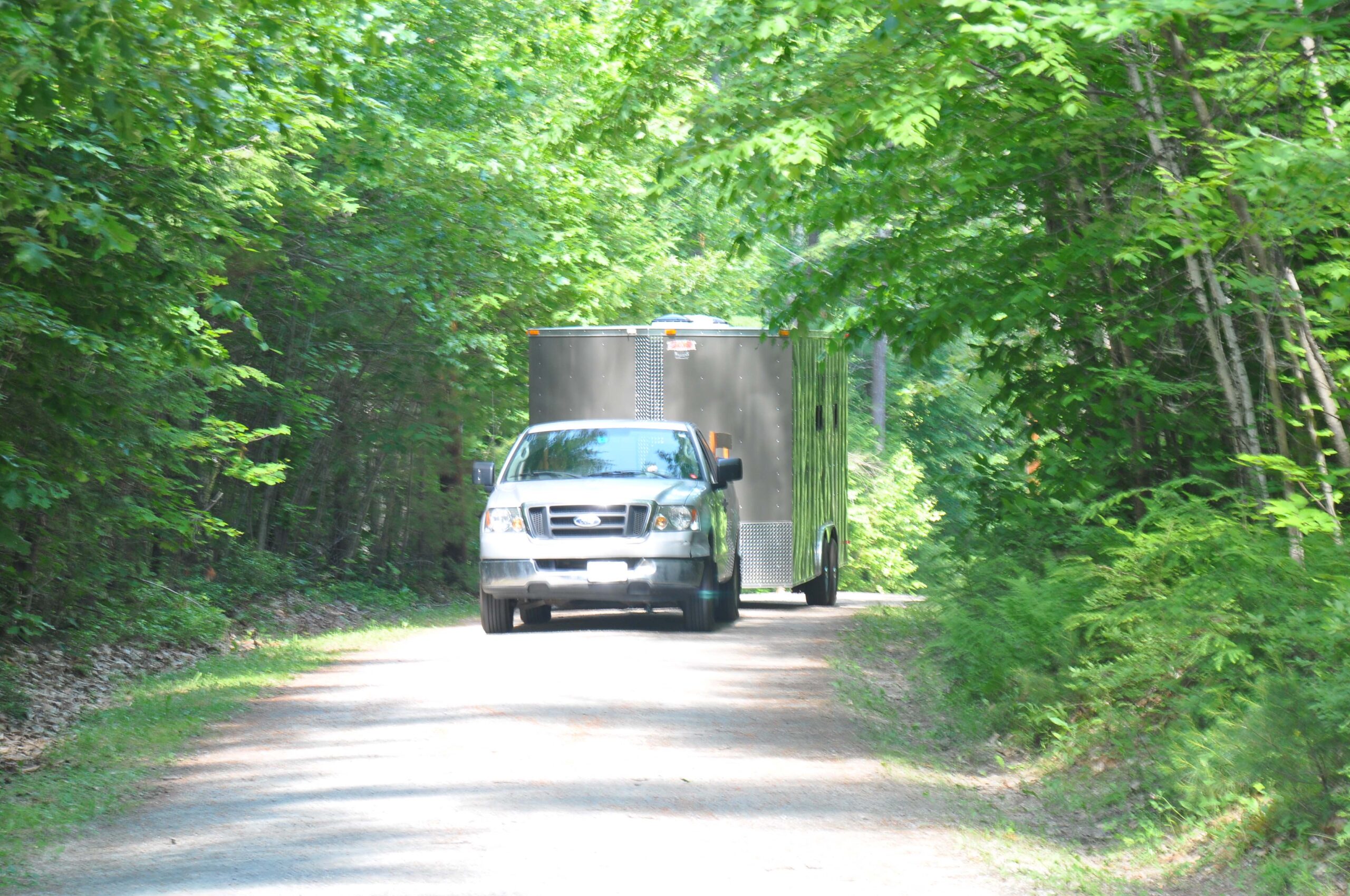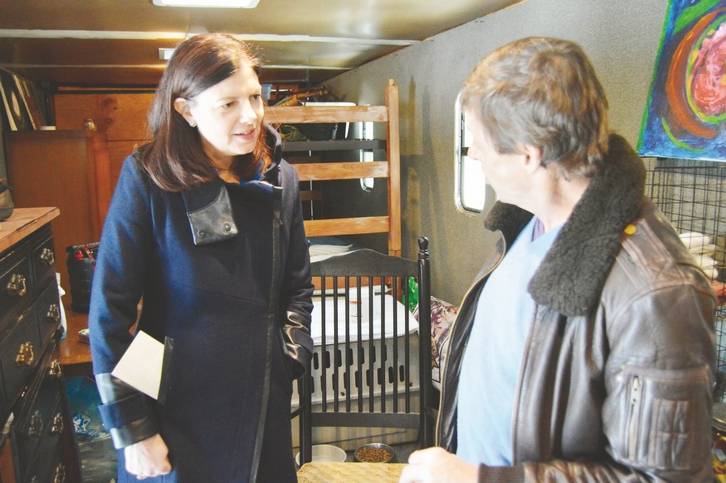
25 Jun “Tiny House” experiment for Homeless Veterans in New Hampshire.
Tiny House Experiment To Help Homeless Veterans Gains Support
By JASON SCHREIBER
Union Leader Correspondent

U.S. Sen. Kelly Ayotte, R-NH, speaks with Keith Howard inside a cargo trailer transformed into a tiny home. (Jason Schreiber)
RAYMOND — U.S. Sen. Kelly Ayotte, R-NH, got her first look inside Keith Howard’s tiny house on Friday.
Howard, the executive director of Manchester’s Liberty House, has been living inside a 160-square-foot cargo trailer on property in Raymond since last June as part of a test to see if it could serve as transitional housing for homeless veterans until they get back on their feet.
So far his experiment has worked, and Ayotte was impressed.
“Obviously he’s showing himself by living here that this is a place that could be livable for our homeless veterans and give an opportunity for them to also have their privacy and their own space,” Ayotte said after checking out the trailer, which sits in a thickly wooded area off Harriman Hill Road.
The 65-acre property known as “Sanctuary” is owned by John and Elizabeth “Alaya” Chadwick, who offered it up for Howard’s test for the Liberty Homes Project.
The hope is to convert more cargo trailers that can be placed on property for a period of time to house homeless veterans while transitioning to permanent housing.
“Our goal is to transition three or four more this year,” he said.
Howard, a former homeless Army veteran, spearheaded the project through his work at Liberty House, a transitional living facility for formerly homeless veterans in Manchester.
So far, Howard said, his stay in the trailer, which will last a year, has gone well. The only problem was the night the water dish for his dog, Lucy, froze because it got a little too chilly.
The trailer is equipped with propane heat and a solar panel for electricity. It’s insulated, has a bunk bed with storage space, a toilet, a ceiling fan, and a small kitchen.
“I could live here forever,” said Howard, whose time will be up in June.
While it doesn’t have running water, Howard is able to shower at a YMCA.
Howard said 15 people have reached out offering to donate trailers for future homes. It costs about $2,500 to outfit a trailer through the work of homeless veterans themselves.
The project got a boost Friday when members of the Disabled and Limbless Veterans stopped by and presented a check for $5,000.
“He’s what we do. He’s helping veterans. He cares,” Mike McNulty, founder and CEO of Disabled and Limbless Veterans, said of Howard and his efforts.
McNulty also praised the decision by Liberty House’s board of directors to no longer accept federal funding from U.S. Department of Housing and Urban Development as of Jan. 1.
The board made the decision because it’s at odds with HUD’s “Housing First” policy, which has no expectation of sobriety, treatment, or compliance from its tenants.
Liberty House is a clean and sober facility.
Ayotte sent a letter to HUD Secretary Julian Castro earlier this month asking that adequate federal housing assistance funding be set aside for substance-free housing facilities like Liberty House.
“As we focus on policies to reduce homelessness, we should recognize that there is no one-size-fits-all solution. While Housing First may successfully help some homeless persons transition into housing, others need the stability, structure and support that substance free housing facilities offer,” she wrote.
jschreiber@newstote.com

